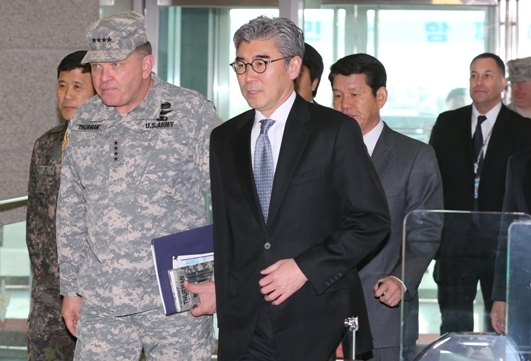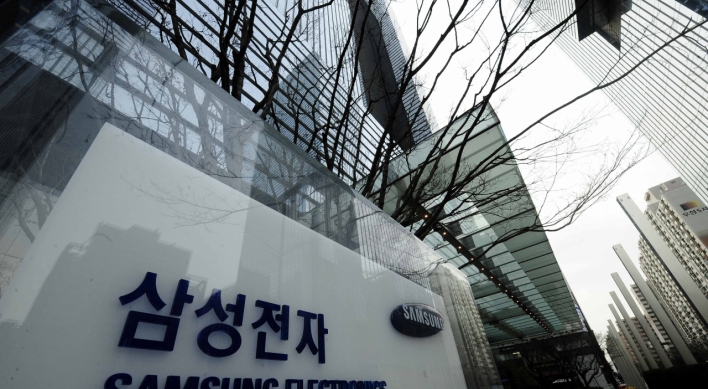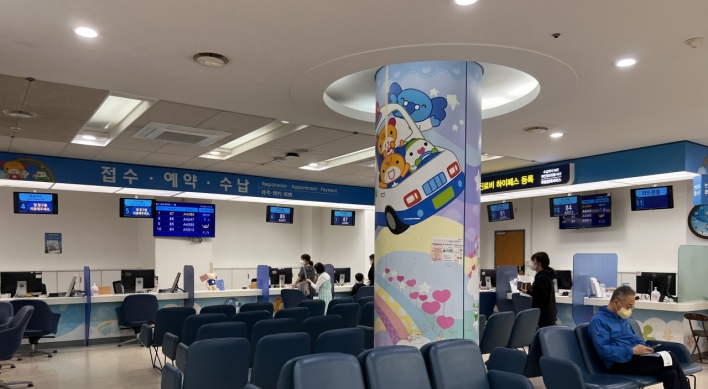
The South Korean government entered emergency mode by stepping up the security alert level and fully activating diplomatic channels to discuss countermeasures following North Korea’s defiant nuclear test Tuesday.
Outgoing and incoming presidents Lee Myung-bak and Park Geun-hye met at 3 p.m. in Cheong Wa Dae for discussion upon Pyongyang’s nuclear test in Kilju County despite vehement warnings by the international community.
“It is deemed that the North is attempting to raise anxiety among our government and the people and push us into confusion by making such a provocation at a time of our government handover,” Park told Lee in their first meeting since Dec. 28.
The two agreed on the importance of cross-partisan cooperation on dealing with the North.
Park had arranged a trilateral meeting with the leaders of the rivaling parties last week during which they reaffirmed their full cooperation against Pyongyang’s provocations.
The Defense Ministry stepped up the military readiness to level two from level three upon the North’s nuclear test, while South Korea and the U.S. upgraded the “Watch Condition” status.
Defense Minister Kim Kwan-jin held an emergency meeting with U.S. Forces Korea Commander James Sherman and U.S. Ambassador to Korea Sung Kim.
The three defined North Korea’s nuclear test as a “grave act of provocation” damaging the peace and stability of the Korean Peninsula as well as regional and world peace, and agreed on a need for a staunch international measure, the ministry said.
South Korea and the U.S. also agreed to continue close cooperation with fortified surveillance and vigilance against any additional provocation by the North.
Immediately upon detecting the nuclear test through an artificial tremor, President Lee convened an emergency meeting of the National Security Council at 1 p.m. with Prime Minister Kim Hwang-sik, First Vice Foreign Minister Ahn Ho-young, Defense Minister Kim Kwan-jin and Unification Minister Ryu Woo-ik.
“North Korea’s nuclear test following the missile launch is a clear violation of the U.N. Security Council’s resolutions including Resolution 1718, 1874 and 2087,” Chun Young-woo, chief presidential secretary on foreign affairs and security, said in a statement.
He vowed tough consequences by the U.N. Security Council and heightened defense against any additional provocation by the North, such as by deploying missiles capable of striking all of North Korea.
President-elect Park also called an urgent meeting with former Defense Minister Kim Jang-soo, who has been named to head the presidential official of national security, and her foreign affairs, unification and defense committee members.
“The new government will by no means tolerate North Korea’s nuclear armament,” Park said at the meeting according to her spokeswoman Cho Yoon-sun.
“The Korean peninsular trust-building process pursued by the new government cannot be accomplished through our efforts alone,” Park said. "We will be able to push toward it only when the North shows sincere and earnest attitude and action."
The president-elect called for stern measures by the members of the six-party talks and the U.N. to condemn the North’s provocation.
Foreign Minister Kim Sung-hwan, currently in New York, telephoned U.S. Secretary of State John Kerry and agreed to take a “swift and unified action at the U.N. Security Council,” according to ministry spokesman Cho Tai-young.
Kim also scheduled meetings with U.N. Secretary-General Bank Ki-moon, U.S. Ambassador to the U.N. Susan Rice and Vitaly Churkin, the Russian representative to the U.N., to confer on measures against the defiant North. The U.N. Security Council was set to convene an emergency meeting upon Seoul’s request at 11 p.m. Korean time.
South Korea’s chief nuclear envoy Lim Sung-nam telephoned his U.S. and Japanese counterparts to discuss the next steps. He was also set to meet with the U.S., Japanese and Russian ambassadors in Seoul. Lim also met with an acting delegate from the Chinese Embassy in place of ambassador Zhang Xinsen, who is currently visiting his homeland.
The South Korean Foreign Ministry convened an emergency meeting presided by Second Vice Minister Kim Sung-han and reaffirmed safety measures for South Koreans overseas.
South Korea’s economic policymakers, on their part, fortified their monitoring of the market. Finance Minister Bahk Jae-wan convened a meeting with his top ministry officials at 1:15 p.m. to analyze the potential impact of the nuclear test on the financial markets.
By Lee Joo-hee
(jhl@heraldcorp.com)



![[KH Explains] No more 'Michael' at Kakao Games](http://res.heraldm.com/phpwas/restmb_idxmake.php?idx=644&simg=/content/image/2024/04/28/20240428050183_0.jpg&u=20240428180321)



![[Grace Kao] Hybe vs. Ador: Inspiration, imitation and plagiarism](http://res.heraldm.com/phpwas/restmb_idxmake.php?idx=644&simg=/content/image/2024/04/28/20240428050220_0.jpg&u=)
![[Herald Interview] Mom’s Touch seeks to replicate success in Japan](http://res.heraldm.com/phpwas/restmb_idxmake.php?idx=644&simg=/content/image/2024/04/29/20240429050568_0.jpg&u=)


![[News Focus] Lee tells Yoon that he has governed without political dialogue](http://res.heraldm.com/phpwas/restmb_idxmake.php?idx=644&simg=/content/image/2024/04/29/20240429050696_0.jpg&u=20240429210658)







